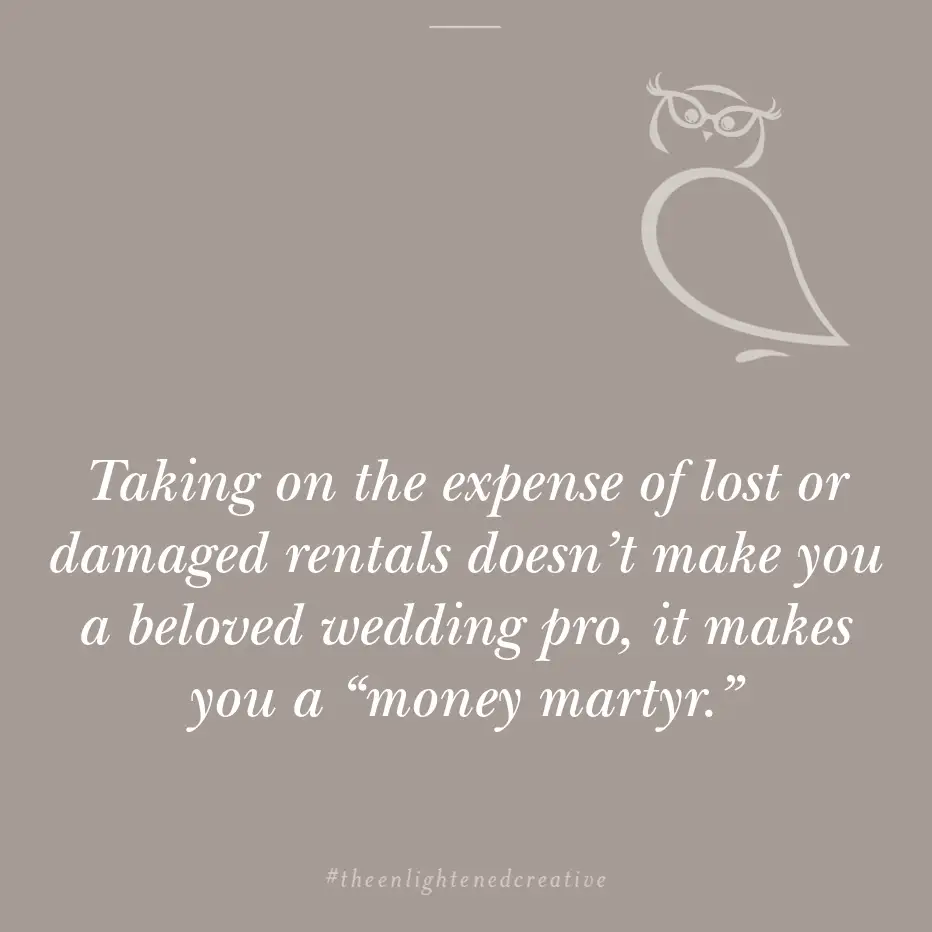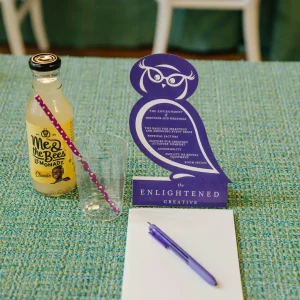
Recently, I saw a reel on Instagram where a wedding planner shared that she covered a $600 expense for her clients when some of the wedding day rentals were lost or stolen.
I was both surprised and not surprised by this. I find that we can sometimes be an industry of “people pleasers” (myself included). However, it’s crucial to protect our businesses and avoid going into debt by taking on our clients’ unexpected expenses.
Here are some tips to help you educate your clients about potential additional costs and how to avoid them. By educating clients upfront, we can help them avoid unexpected expenses and ensure smooth, wedding day.

1. Set Expectations With Your Clients Before the Planning Actually Begins.
- Ensure your service contract clear outlines who is responsible for any lost or damaged items.
- When you communicate your fee, ensure that it includes a $500 fee for wedding day petty cash. Remember to keep the receipts for each purchase. And, remember to return any money that you don’t spend.
- Encourage your couples to include a line item in their budget for unexpected expenses. It should be 5 to 10% of the overall budget.
- Suggest wedding insurance options to cover unforeseen expenses.
2. Educate Your Couples About Potential On-Site Expenses.
- Before the wedding occurs, explain that some rentals, such as napkins, napkin rings and flatware might get lost, stolen or broken. Without getting too technical, share your process for avoiding these mishaps, but be clear that many vendors are on-site, so losses and accidents do occur. Reiterate this conversation in writing.
- Explain the impact of losses and mishaps on the overall budget. Follow up in writing. Let your client know that you are open to discuss the occurrences after the wedding.
3. Have a Plan in Place to Avoid and/or Address Mishaps and Losses
- Review the contract and the damage waiver(s) in advance. Get a clear understanding about who is responsible for what.
- Work with your team to perform an inventory of rentals before the wedding. Discuss a plan with the banquet team to manage the inventory as tables are cleared.
- Before you depart the event, perform a post-event inventory. Contact the rental and/or production company to discuss next steps.
- If something should occur, express empathy and understanding. Offer a solution. But, try to avoid taking responsibility for something that is not your fault.
4. Avoid Taking on Your Couple’s Expenses As Your Own.
- You may be responsible for helping your client manage their wedding budget, but you are not responsible for managing their bank account.
Love and Soul Always, Kawania
First Photo: Shutterstock









